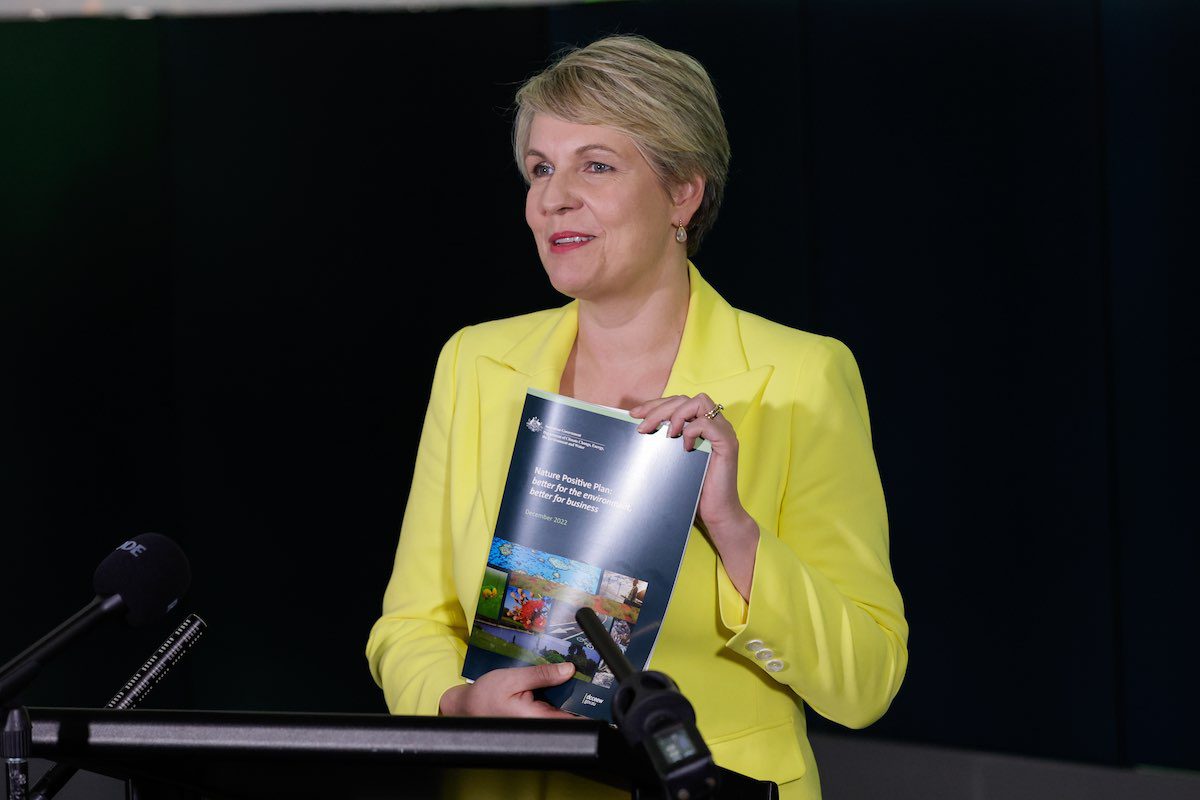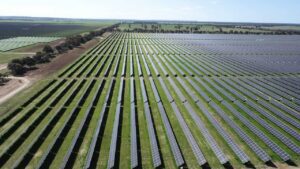Australia will soon have its first national, independent environment watchdog that can issue hundreds of millions in penalties to anyone breaching federal environmental law.
Details about the much-anticipated Environment Protection Agency were revealed on Tuesday by Environment Minister Tanya Plibersek.
The body will be given powers to issue Environment Protection Orders, also known as stop-work orders, to those in breach of the law, and audit businesses to ensure they are compliant with environmental approval conditions.
Maximum fines for extremely serious intentional breaches of federal environment law have also been increased to $780 million or a jail term of seven years.
The agency’s chief will be an independent a statutory appointment, similar to the Australian Federal Police Commission, to ensure government cannot interfere with the agency’s work.
“Our government is doing more than ever to protect our country’s natural treasures, native plants and animals, so Australians can continue to enjoy our lifestyle in the great outdoors,” Ms Plibersek said in Sydney.
The Environment Protection Agency will also be responsible for enforcing other federal laws such as recycling, hazardous waste, wildlife trafficking, sea dumping, ozone protection, and air quality.
Ms Plibersek also announced a body that will provide businesses with easier access to the latest environmental data, release State of the Environment reports every two years instead of five, and report on progress on national environmental goals.
Through these functions Environment Information Australia is aimed at boosting accountability and transparency.
These two bodies will be complemented by a $100 million commitment to speed up environmental approval decisions by providing more support for staff to assess project proposals, increased funding for research into threatened species, and more support to help businesses comply with environment law.
However, environment groups were expecting the government to reveal its reforms to the nation’s main environment law the Environment Protection and Biodiversity Conservation Act, after the 2020 Samuel review found it was failing.
The draft laws were originally supposed to go before parliament by the end of 2023, but that was later pushed back to some time in 2024.
“We are in the midst of an extinction crisis and our national nature law is in need of urgent, comprehensive reform,” said ACF’s CEO Kelly O’Shanassy.
“We call on the Albanese government to deliver the full package in this term of parliament.”
WWF-Australia CEO, Dermot O’Gorman said the reforms were an important step forward but said they must be followed by a comprehensive package of reforms to prevent extinctions.
“Establishing an EPA could be a real game changer for the environment,” said Mr O’Gorman.
“The greatest failing of the EPBC Act has been the absence of genuine compliance and enforcement. A well-resourced and truly independent cop on the beat could help fix this problem and ensure every Australian, business and industry is doing the right thing for nature.”
NATIONAL ENVIRONMENT WATCHDOG
* The Environment Protection Agency will have new powers and penalties to help enforce federal environment law
* It will be able to issue environment protection orders, also known as “stop-work” orders to anyone breaking the law and can audit businesses to ensure they are complying with environment approval processes
* Maximum fines have been increased to $780 million for extremely serious intentional breaches of federal environment law
* Courts could also send offenders to prison for up to seven years under these new penalties
* The agency will be responsible for enforcing other federal laws such as recycling, hazardous waste, wildlife trafficking, sea dumping, ozone protection, and air quality
ENVIRONMENT INFORMATION AGENCY
* The Environment Information Australia will provide the government and public with environmental data
* It will be legally required to publish state of environment reports every two years, instead of five
* The body will develop an online database to give businesses quicker access to data and iron out the federal environmental approvals process
* The government has allocated $100 million to help speed up environmental approval decisions
* These announcements are the second stage of the government’s Nature Positive Plan
*It initially promised to implement the plan in full by the end of 2023, but it has been split into tranches with significant reform of the nation’s main environment legislation delayed into 2024
AAP










